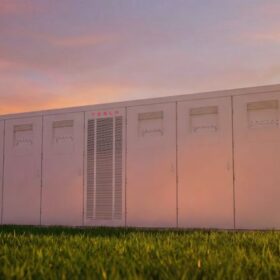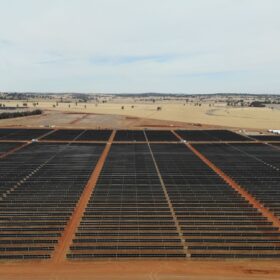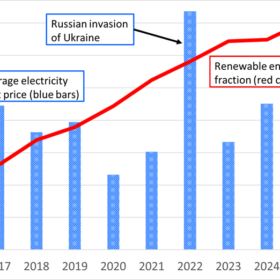With every state and territory except Tasmania smashing records for the volume of solar panels and system size installed, Australia now has 20,000MW of solar capacity nationwide—up from 15,000MW in 2019.
Australia led the world in uptake of solar on a per-capita basis and this follows a record year for installations in 2019.
The annual growth rate for rooftop solar has exceeded 33% for the past four years, and accelerated in 2020.
“The number of Australians installing rooftop solar systems increased by 40% compared to 2019 levels,” said Warwick Johnston, Managing Director of SunWiz.
“The COVID-19 pandemic had major impacts on Australia’s economy, but the benefits of solar were strong enough to help the industry overcome challenges including supply shortages from China, lockdowns stopping installation in Victoria, and economic uncertainty.
“In fact, the pandemic had an overall positive impact for the industry as people staying home more turned to solar to help reduce their electricity bills,” said Johnson.
Commercial growth slowed, partly due to COVID-19’s impact on the broader economy and business finances, but corporate power purchase agreements and green hydrogen provided optimism for the future, with mega-projects on the horizon – including the 14,000MW SunCable and the 26,000MW Asian Renewable Energy Hub.
Utility-scale battery projects also became commonplace as State governments worked towards meeting their net zero emissions targets, with Renewable Energy Zones, purchasing price agreements and subsidies.
“It’s an exceptional time to be working anywhere in the Australian rooftop solar supply chain, and things will only get better as solar system prices continue to hit record lows and momentum builds on reducing emissions to tackle climate change,” said Mr Johnson.
“While we need policies that ensure every household can connect solar to the grid and ideally make it simpler and more affordable for renters across the country to install solar panels – similar to what is underway in Victoria, 2021 looks to be another bright year for solar,” said Johnson.






By submitting this form you agree to pv magazine using your data for the purposes of publishing your comment.
Your personal data will only be disclosed or otherwise transmitted to third parties for the purposes of spam filtering or if this is necessary for technical maintenance of the website. Any other transfer to third parties will not take place unless this is justified on the basis of applicable data protection regulations or if pv magazine is legally obliged to do so.
You may revoke this consent at any time with effect for the future, in which case your personal data will be deleted immediately. Otherwise, your data will be deleted if pv magazine has processed your request or the purpose of data storage is fulfilled.
Further information on data privacy can be found in our Data Protection Policy.